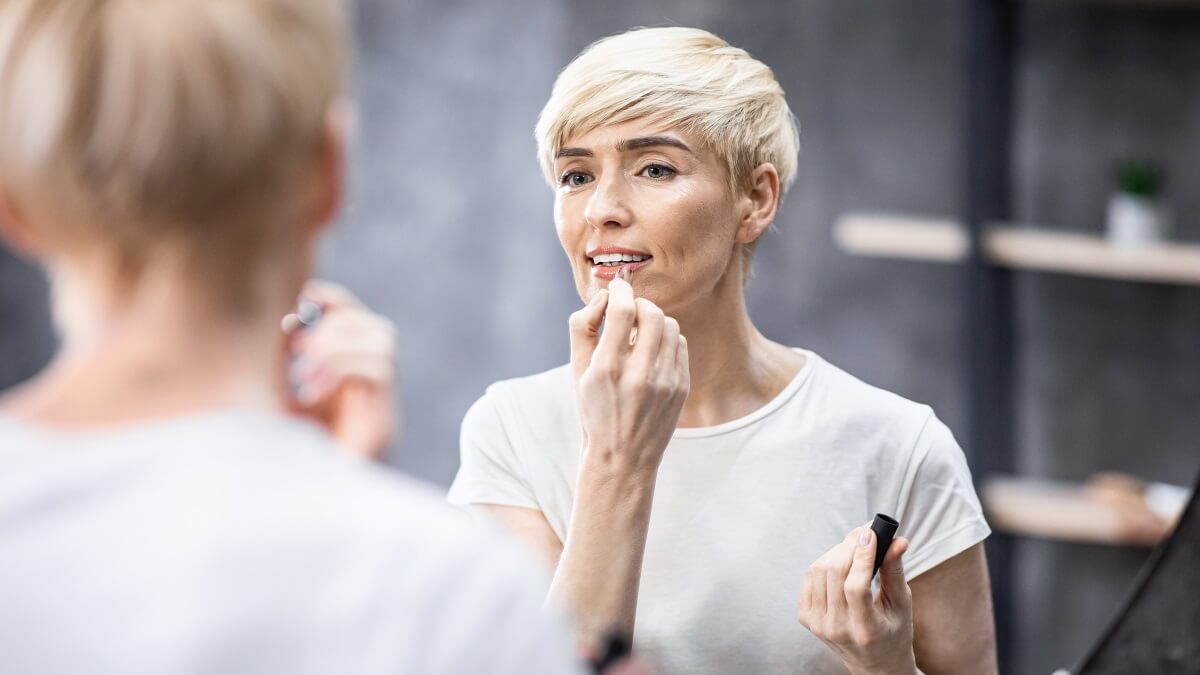Having chapped lips is not only uncomfortable but painful. Various factors can cause chapped lips, including dehydration, exposure to the sun, dry weather and underlying medical conditions.
The skin on your lips differs vastly from the skin on your face and other parts of the body. This is because the skin on your lips is located at the boundary of the mucous membrane and facial skin. This skin has a thinner stratum corneum and no hair or sweat glands. All these unique characteristics make this skin even more sensitive, and make chapped, dry, or cracked lips more likely.
Here are some common causes of chapped lips and how to heal them quickly.
Weather
Dry weather or extremely cold temperatures can remove the moisture from the lips, causing them to dry out or crack.
If the air is dry in your home, using a humidifier will add much-needed moisture back into the air.
When going out, remember to moisturise your lips before you leave and wear a face mask or scarf to cover your lips from dry or cold wind.
Dehydration
If you are not drinking enough water, your lips can easily become dehydrated. This is particularly common in the winter, when you tend to drink less water.
Due to the dramatic drop in air moisture and humidity in winter, the lip skin’s moisture dries up more quickly. Most people do not protect their lips when they go out, thus subjecting them to harsh cold winds that cause cracking.
A study in 2021 revealed a correlation between lip skin hydration and the severity of lip scaling. Scientists verified the relationship between protease activity, hydration, and chapped lips. It is recommended to drink lots of water in both the winter and summer months to prevent lips from drying out.
Licking your lips
Some people like the soothing sensation, while others do it out of habit, but licking your lips all the time can dry them out rapidly. The digestive enzymes present in saliva can break down the protective barrier on the lips, making them more susceptible to dryness and cracking.
Lip licker’s dermatitis is a chronic ailment that can develop as a result of frequent lip licking. This is caused by unconscious, yet constant, licking of the lips, which disrupts the normal skin barrier and causes inflammation. Long-term consequences of constantly licking your lips include hyperpigmentation and redness around the area of the mouth and yeast or other bacterial infections.
If you find yourself licking your lips frequently, try to break the habit by keeping a lip balm handy so that you can apply it whenever you feel the urge to lick your lips. Choose a lip balm that is fragrance-free and has moisturising and soothing ingredients such as shea and cocoa butter.
Medications
Dehydration is an adverse effect of some drugs, including antihistamines, antidepressants, chemotherapy medications and diuretics. Certain medications that include Retin-A or salicylic acid can also cause dryness and cracking of the lips. Creams that are used to treat acne, such as isotretinoin, have the same effect.
To prevent chapped lips caused by applying topical creams or taking medication, it is important to talk to your doctor, as they may be able to adjust your dosage or switch you to a different medication that has fewer side-effects.
Not using SPF
It’s easy to neglect your lips when applying sunscreen. Collagen is an organic compound that keeps lips looking full and healthy. Sun exposure destroys the layer of collagen present on your lips, which in turn makes the skin thinner over time.
Vitamin B2 deficiency
Vitamin B2, also called riboflavin, plays an important role in maintaining healthy skin and promoting new cell growth. A deficiency of this vitamin can cause cracking of the lips, specifically in the corners of your mouth, and cause sores to form in some severe cases.
In some people, a deficiency of vitamin B2 can cause cheilosis, a condition characterised by painful cracks and fissures in the corners of the mouth.
It is important to consume a balanced diet, including foods rich in vitamin B such as meat, fish and eggs, to reduce the risk of deficiency. Some doctors also recommend taking vitamin B supplements or injections to help correct the deficiency.
The most important thing you can do to heal your chapped lips is to keep them hydrated and regularly apply a good-quality lip balm. If you are going to be outside in harsh temperatures, wear a scarf or mask and use a lip balm with SPF to protect your lips from the sun.
Do you suffer from chapped lips in the winter? What do you do to avoid this problem? Let us know in the comments section below.
Also read: How to keep your lips from thinning
Disclaimer: This article contains general information about health issues and is not advice. For health advice, consult your medical practitioner.

